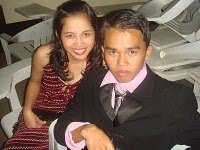Recommended Books on Assessment
*
Angelo, T. A., & Cross, K. P. (1993). Classroom assessment techniques: A handbook for college teachers (2nd ed.). San Francisco: Jossey-Bass. (available in LMU Center for Teaching Excellence and library call#: LB 2822.75 A54 1993)
Learn how to plan, implement, and analyze assessment projects, by reviewing fifty classroom assessment techniques, step-by-step procedures for administering the techniques, and practical advice on how to analyze your data alongside twelve case study examples included in this text.
*
Dunn, L., Morgan, C., O’Reilly, M., & Perry, S. (2004). The student assessment handbook: New directions in traditional and online assessment . London: Routledge Falmer. (library call#: LB 2368 S88 2004)
Read practical examples for embedding assessment in courses and programs including:
1.) Methods for assessing oral and written communication skills in a variety of disciplines
2.) A three-stage process used to assess how students learn to be 'reflective' using
reflective writing and portfolios (see pg. 189-192)
*
Maki, P. L. (2004). Assessing for learning: Building a sustainable commitment across the institution . Sterling, VA: Stylus Publishing. (library call#: LB 2366.2 M35 2004)
An expert in assessment offers a blueprint for building assessment practices into every aspect of a university's infrastructure. You will find practical advice, examples, fill-in-the-blank templates for everyday assessment activities, and an introduction to rubrics, including what they are used for and how to construct them in a variety of institutions and disciplines.
*
Martell, K., & Calderon, T. (Eds.). (2005). Assessment of student learning in business schools: Best practices each step of the way (Vols. 1-2). Tallahassee, FL: Associate for Institutional Research.
Find examples of assessment plans and rubrics in tabular form that have proved successful amongst other business faculty. These resources may prove helpful to faculty in other disciplines as well.
*
Miller, R., & Leskes, A. (2005). Levels of assessment: From the student to the institution . Washington, DC: Association of Colleges and Universities. (library call#: LB 2331.63 M55 2005)
The "five levels" of assessment at the university are outlined here, therefore differentiating between program assessment, course assessment, student assessment, etc. Typical assessment questions for each level are discussed.
*
Palmoba, C. A., & Banta, T. W. (Eds.). (2001). Assessing student competence in accredited disciplines: Pioneering approaches to assessment in higher education. Sterling, VA: Stylus Publishing.
This book offers practical advice for faculty responsible for assessing student learning from both an institutional and accreditation vantage point. Particular emphasis is placed on professional disciplines, including business, teacher education, and social work, yet some content is applicable across academic disciplines as well (see Ch. 1, 2, and 13).
*
Walvoord, B. E. (2010). Assessment clear and simple: A practical guide for institutions, departments, and general education (2nd ed.). San Francisco: Jossey-Bass.
Find practical advice, sample rubrics, plans and examples presented in simple, straight forward manner.
Subscribe to:
Post Comments (Atom)

No comments:
Post a Comment